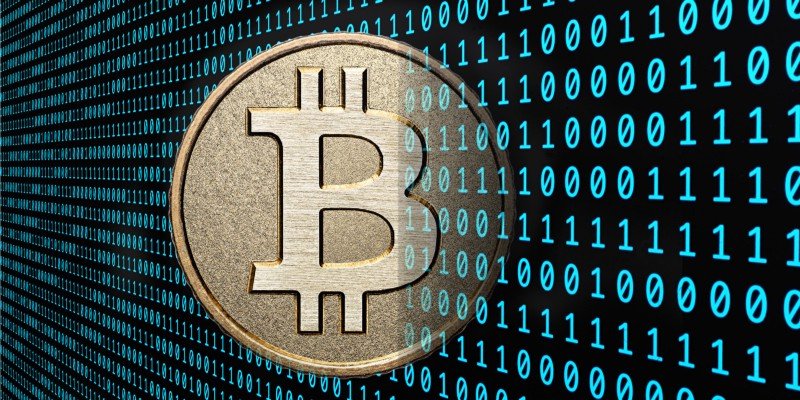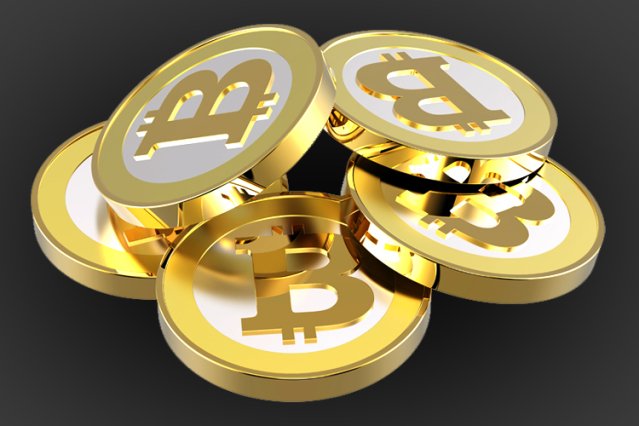
I read an article about bitcoin from the Huffington Post by Steven Strauss John L. Weinberg/Goldman Sachs & Co. visiting Professor at Princeton University’s Woodrow Wilson School and found it very misleading. Here is my rebut of the article.
I quote the article below with my responses in italic typeface between his points:
“Nine Trust-Based Problems With Bitcoin 04/14/2013 | Updated Jun 14, 2013"
"Bitcoin seeks to be an electronic cash (currency) system that doesn’t rely on trust. Paradoxically, Bitcoin requires a trust-based ecosystem."
"As a brief summary: The Bitcoin system was developed as an electronic currency by Satoshi Nakamoto (apparently, a pseudonym). Bitcoins exist only in the online world (they have no physical form). Each Bitcoin is uniquely identified, and is part of a limited edition (only a pre-set number will be issued). And, if properly executed, Bitcoin transactions are anonymous and non-reversible. For a more detailed explanation of Bitcoin’s architecture, see Benjamin Wallace (Wired) or The Economist."
"Bitcoin is intended to be digital cash/currency, based on cryptography and peer-to-peer networks, rather than trust. As Nakamoto explains:
The root problem with conventional currency is all the trust that’s required to make it work. The central bank must be trusted not to debase the currency, but the history of fiat currencies is full of breaches of that trust. Banks must be trusted to hold our money and transfer it electronically, but they lend it out in waves of credit bubbles with barely a fraction in reserve. We have to trust them with our privacy, trust them not to let identity thieves drain our accounts."
"Nakomoto cites as conventional currency’s root problem: “all the trust that’s required to make it work.” But Bitcoin requires us to replace trust in legal systems, institutions and procedures, with a system where we must:
ONE) Trust the willingness of counterparties to accept Bitcoin as currency for payment — a huge leap of faith. Purchasing Bitcoins means participation in a 100 percent trust-based system, without any legal mechanism to compel their acceptance. Conventional currencies rely not just on trust, but also on the force of law. For example, in America the “Legal Tender Statute” (31 USC Sec. 5103) specifies that: “United States coins and currency ... are legal tender for all debts, public charges, taxes, and dues.” No country issues Bitcoins, and no government legally compels anyone to accept them as payment."
When convinced through science that the token bitcoin, a software system validating a blockchain of time stamps has utility on a ledger for the purpose of transferring legal ownership, like a notary would do, it becomes extremely powerful which brings value; i.e., it can be used for the transfer of ownership rights, registrations of identification and or property, with transparency and immutability (unchangeable). Knowing these tokens (bitcoin) are limited and can hold important data and that their (bitcoin/token) ownership can be controlled by an individual – why would you not want to be that owner? If so, you bid a free market price for that ownership and control. When many people see the same utility value it gives you trust in it without needing a government or army to have it deemed with a Legal Tender Statue.
The real engine behind bitcoin is known as the blockchain which gives digital tokens as rewards to processors for validating its ledger. Fractions of the tokens are known as satoshi's or milibits and full tokens are called bitcoin. It's just a simple ledger to bring transparent auditing to the world of finance like bookkeeping was intended to do. A true new GAAP (generally accepted accounting principle) has arrived through 'computational trust'. Encryption is used with the blockchain to ensure trust of transferring ownership even if its just ownership of a message. In the future the National Security Agency (NSA), CIA and all governments will demand extremely powerful encryption and systems to prevent spying. The blockchain will be used in sending private information securely, using processing power to lock out potential hacks, securing banking, communications and privacy.
TWO) "Trust unregulated institutions with your personal bank information just to purchase Bitcoins. As described in Mother Jones:
... if you ... have qualms about handing over all of your bank information to an anonymous internet stranger, then you might want to just give up now. The major Bitcoin exchanges don’t accept credit cards ..."

You can earn bitcoin or sell an item for bitcoin, and neither require any identification. You can buy bitcoin on-line without identification if you are willing to deposit cash in the sellers bank account while the bitcoin you are purchasing is held in escrow. Keep in mind that doing that will put you under the cameras at the bank and they may ask you for identification at the teller. Handing over your identification to third parties will always involve risk, including to well-established banks, companies or the government. The thing is you don't have to use unregulated institutions to buy bitcoins and in time like in New York there will be more regulated forms or you can just buy from people you know and trust.
THREE) "Trust a cryptographic, peer-to-peer network computer technology most Bitcoin users don’t understand."
Most people don't understand it just like the early days of the Internet. Welcome to this new technology. You should learn about it because it is here to stay and is: the greatest advancement in business since the computer. I am fascinated by an algorithmic protocol that uses cryptographic hashes & public key cryptography. It rewards participants with another protocol that retains its value called a bitcoin, all for validating a ledger called the blockchain on a peer-to-peer decentralized transparent public network you don't have to trust. People should decide to use bitcoins as their money. It would eliminate so many fees and middlemen and bring the power of the individual back to the community level. It will eliminate foreign exchange charges and keep your finances private. I understand it is complicated and it's like learning a new language; bitcoin, blockchain, encryption, processing power, hash rate, satoshi, milibit, hacking, validating a ledger, computational trust, dual authentication are all very new terms. But remember it was the same when the Internet emerged; WWW, email, HTTP://, browser, ad blocker etc.
FOUR) "Trust that Bitcoin (really, a beta) won’t be replaced by a superior digital currency system, rendering original Bitcoins obsolete and worthless."
Lets say you lived in a village and had to travel 1 kilometer to get water. One of your neighbours decides to dig a ditch over that whole kilometer and have the water run down to the village using gravity. Would you build another ditch beside it to get water? Bitcoin still has not gone away; it's been around for 8 years and people keep putting it in your face. The bitcoin blockchain has more processing power than has ever been put together for any single purpose, thus validating its ledger. Granted, the processing power is not for general purpose processing, but I don't care if the processing power is for finding out relevant information or validating a ledger. The processing power is; zeroes and ones or electrical on and off, bits and bites - binary code. The Bitcoin protocol uses 360,000 times more processing power, and I had the math done, than all the Google server farms put together!

FIVE) "Trust that the Bitcoin Foundation/other participants won’t create additional Bitcoin series, thereby diluting the value of the original Bitcoins."
False: The Bitcoin Foundation has nothing to do with the bitcoin blockchain besides having an opinion like each individual does. It requires 51% of the processing power to make a change which would be fully transparent and yes, it could be devastating to the value of bitcoin but also those with 51% of that power would be adversely effected. Changes to the protocol have been rare, and occurred mostly at the beginning and are cosmetic. There has been no major change in recent years and any proposed changes are debated for months and need a true democratic vote of 51% of processing power. Remember, Bitcoin has 360,000 times more processing power than all the Google server farms put together.
SIX) "Trust that governments won’t intervene to render Bitcoins worthless (e.g., if Bitcoins facilitate too much drug-dealing or money laundering, the U.S. government could make their possession illegal)."
All governments can do is make them illegal to use in their countries as no one holds bitcoin. All the bitcoin tokens are held on the ledger and thousands of copies of the ledger are spread across the planet. People only have access key codes to transfer ownership of bitcoins. If you look at money and consider it labor, in other words, you did some work and traded it for paper money then that dollar bill has pent up work, energy or productivity stored in it. Bitcoin is the same it has stored value in it. So as long as two people are connected via computer they can transact between each other without government approval. A side note the war on drugs and money laundering is a fraud brought to you by central banks via governments in order to control money flows.
SEVEN) "Trust an anonymous creator (Nakamoto) who’s mysteriously “moved on to other projects” and disappeared."

So what? I know if I created this thing I would want to remain anonymous. Just think how many cameras I would have in my face and the risk of people thinking I was worth billions and then saying the government behind my nationality is behind the idea. Maybe I am Satoshi Nakamoto.
EIGHT) "Trust that Bitcoin markets will be available to provide prices in real currencies — as recent events demonstrate, also a leap of faith."
The Bitcoin blockchain protocol has had no down time, no errors and no hacks since conception. It has had more users and acceptance everyday as well. Bitcoin is not a belief, it pays for validating of the most powerful blockchain ledger created and is a new science technology. I compare bitcoin's relation to the blockchain as being like a triangle as part of geometry. As it grows so does price stability and available bitcoin markets.
NINE) "Trust that your Bitcoins are stored in a secure location. Precisely because Bitcoin transactions are anonymous and non-reversible, they’re highly vulnerable to theft. If your Bitcoins are stolen, they’re pretty much untraceable. For a non-exhaustive list of major Bitcoin theft incidents, click here."
Yes, bitcoin is attractive to criminals who would also steal your cash, gold or any asset that you leave vulnerable. You will need to learn about dual authentication and cold storage to be secure. Being anonymous with your money is a constitutional right under privacy and liberty laws and allowing governments or banks to control your money means you are setting yourself up for being cut off should they deem it necessary. Your money is being inflated away to keep the Military-Industrial Complex (MIC) funded. The MIC dictates the controlling shares of the major companies in the world and has taken over control through the Corporation Act. 147 companies own 40% of the shares of 43,060 transnational companies. Those 147 chairmen of the boards advise the Federal Reserve (which is private and they have controlling interest of shares) through organizations such as the Council on Foreign Relations how their top few shareholders want things.
"Rather than as currency, perhaps we should evaluate Bitcoin as the first example of Dadaist Digital art. An art work exists as part of some limited edition and has no intrinsic use. If you purchase art (for financial reasons), you must believe/trust that members of the art ecosystem will value/be willing to purchase that work at a future time."
Excellent, yes look at it as a work of art. This new technology that uses 'computational trust' to validate a ledger is like putting your favorite audit firms like KPMG, Arthur Andersen (out of business because of fraud) or Deloitte into a calculator but this calculator is a peer-to-peer decentralized computer program that is currently validated every 10 minutes.
Why do we care? Because we care about trust and trust is being compromised everywhere these days. Even our beloved big banks that we always trusted to hold our money and advise us about our future finances have been acting stupid playing with fraud and damaging our trust in them. And to quote the most powerful money person on the planet a few months back Fed Chairman Janet Yellen says. “The federal reserve may need to run a high pressure economy to reverse damage from the crisis that depressed output and risked becoming a permanent scar”. This all while the US has printed over $5-10 Trillion dollars in the last decade and European Central Bank (ECB) Mario Draghi saying we will do “whatever it takes” and the ECB has been printing monthly for the last year and a half along with Japan printing full blast monthly for the last three years. The real fraud here is bailing out banks, if true free markets were around those companies would have been closed or sold off to more trustworthy competitors or nationalized. Over the last four years the Plunge Protection Team and Exchange Stabilization Fund or Open Markets Committee has represented 40% of the upside move in the S&P index. This is clear state planning that has abandoned free markets. Everyone should be aware of this and place their investments strategies accordingly. I favor bitcoin and silver coins as a store of wealth. You can follow me on Twitter @greenmansteem.
For further information on computational trust follow this link for an article I wrote.


